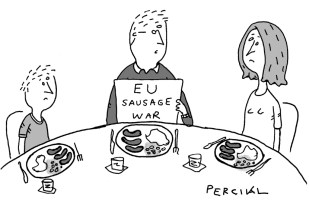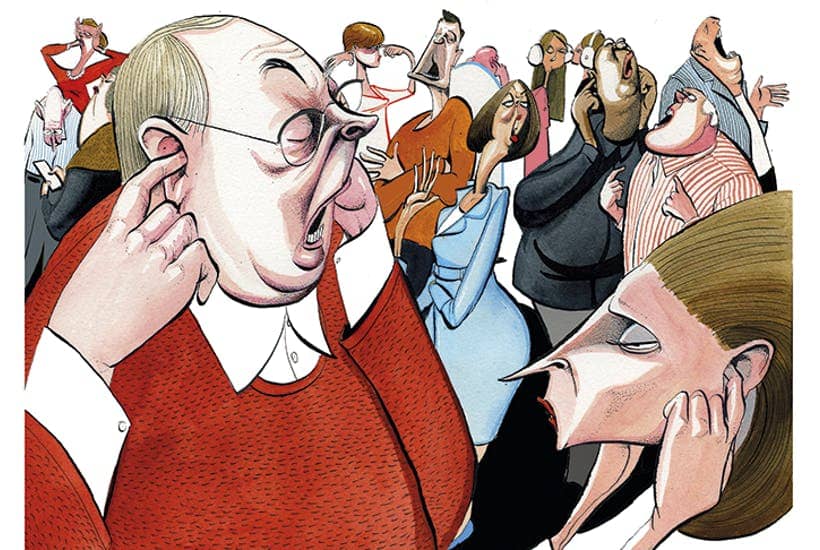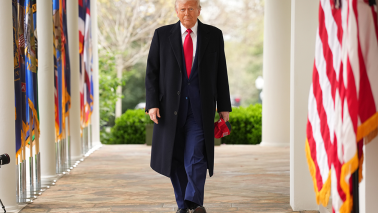Now that the government has kindly allowed us to go out again, I wonder if anyone has discovered the same social challenge I have encountered? Which is that almost nobody agrees on anything. I should pre-empt a possible line of attack here and acknowledge that I am aware of the case study I am basing this on. Still I fancy the problem is wider than myself.
Of course we never did agree on everything. But, after a year of seclusion, it seems that as we de-bubble, the divergences are far greater than before. Not least regarding what we have just been through.
It forks off at the very beginning. For instance there are people — few in number, and perhaps not in your own circle of acquaintance — who basically disbelieve the whole Covid thing. They think it is a hoax or fraud or some great ploy by Klaus Schwab, the IMF or others. These people then have a million little divergences and fallouts of their own. But among those of us who believe it is real we have an equal range of divergences.

There are those who think that it is an exceedingly deadly virus which demanded the shutdowns and isolations of the past year, and those who believe that to varying degrees the virus is not much worse than an average flu year and that we have just inflicted a wholly unnecessary act of collective self-harm. I have noticed that these two relatives get on especially badly, for obvious reasons after a year of sacrifices.
All this is before we get on to the fork in the road on the origins of the virus. As Matt Ridley brilliantly showed the other week, there has recently been a very swift and sharp turnaround in the official narrative about the virus origins.








Comments
Join the debate for just £1 a month
Be part of the conversation with other Spectator readers by getting your first three months for £3.
UNLOCK ACCESS Just £1 a monthAlready a subscriber? Log in